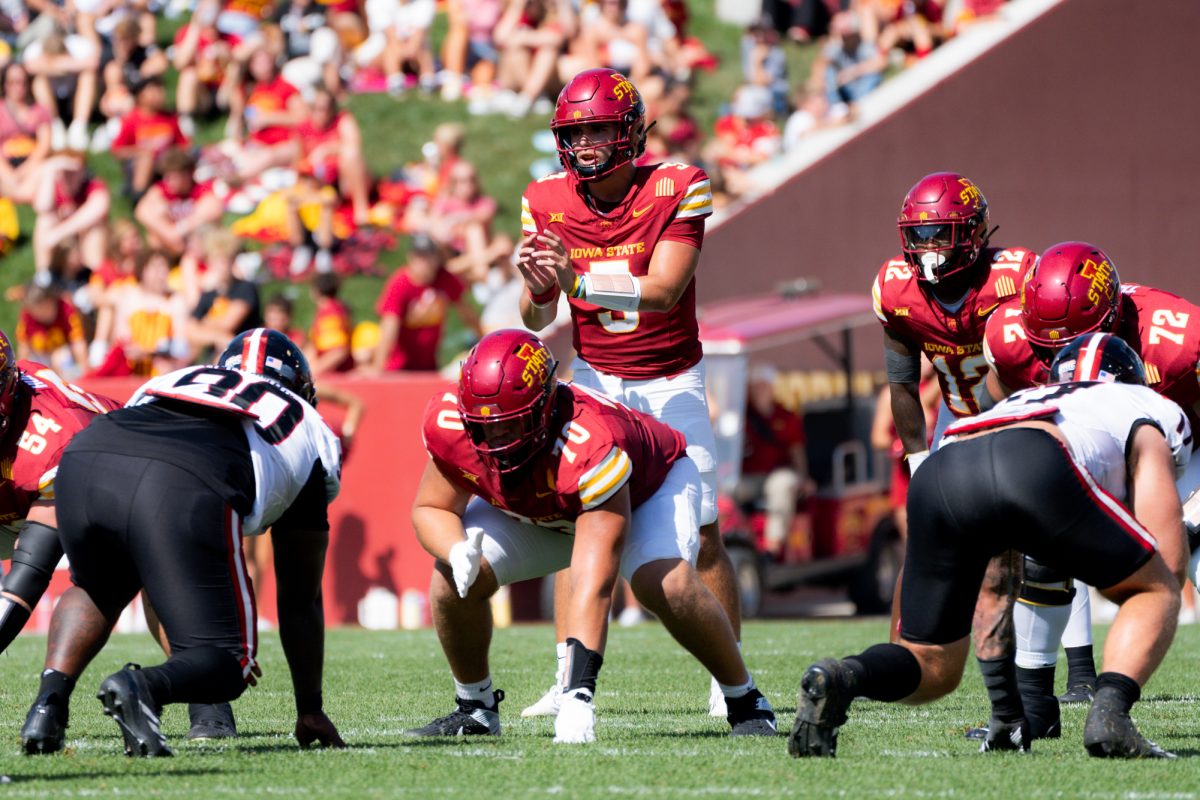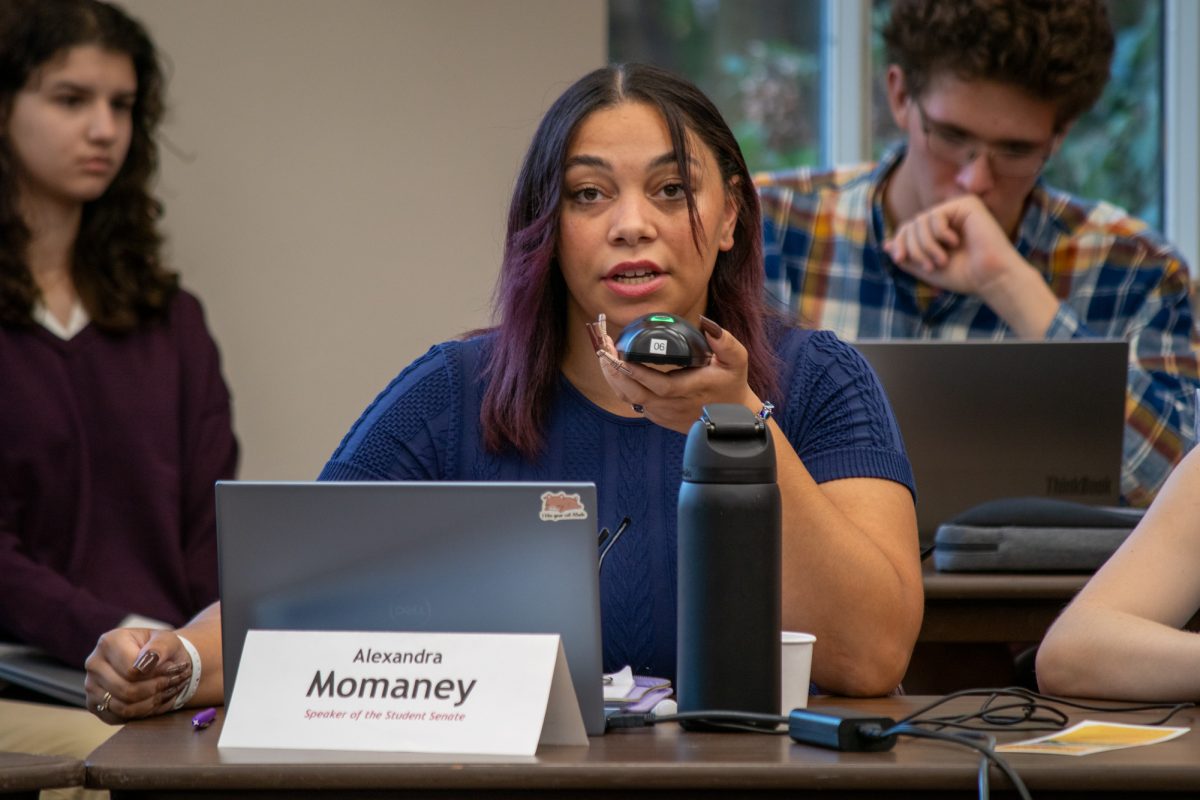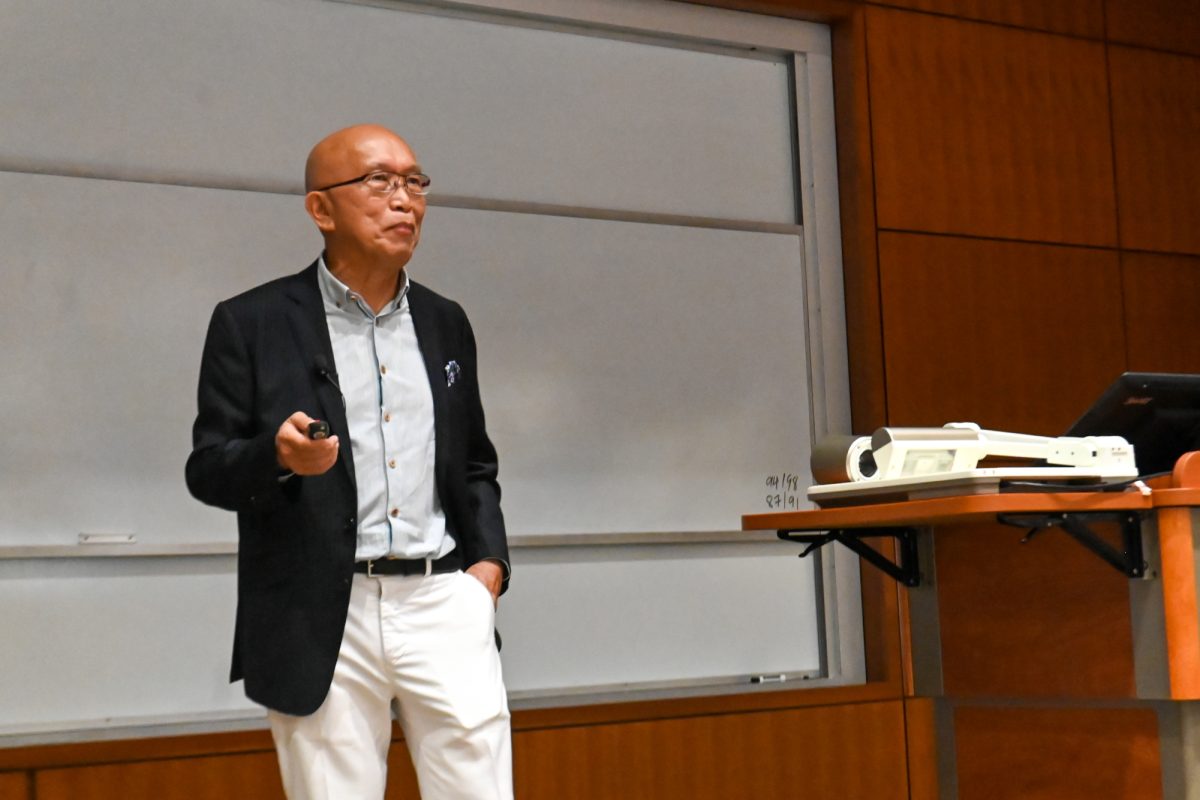Sketch is back … with a vengeance
November 3, 1998
A lot of people talk about that novel they plan to write someday. They talk as if one day it will spout forth from their mouths (or out of their fingers and into the word processor). A bestseller. As if that is all it takes.
Others aren’t as confident. We may have been told our whole lives (by our teachers and Grandma and Aunt Betty and maybe even Uncle Ernie who works down at the newspaper) that we have a talent, but we won’t believe it until we see our name in print.
Well, I’m a believer in baby steps. I may not be published in The New Yorker, and I may not be the editor of a prestigious literary journal, but I am published every week in the Iowa State Daily. And that is an accomplishment, in “wannabe-writer” terms.
This is what I call a good start, but others see it as a compromise. Do these writers actually believe that you can start at the top? Did Jane Smiley (ISU professor of English, author of “A Thousand Acres”) start out by writing a bestseller?
No, but she was teaching here at Iowa State University when it happened. ISU is acclaimed for outstanding agricultural and engineering programs, but we have also been home to many published writers. So why not you, too?
I can hear your excuses already: “But I’m not a writer. I’m a farmer [or an engineer or a computer scientist].”
Hey, who says farmers and engineers can’t be poets? Tell me there isn’t creativity in both fields, a soul which cries out for a voice to defy the stereotypes.
Can an engineer design an aesthetically pleasing and architecturally innovative building as well as a perfectly balanced poem about the essence of humanity in a concrete building?
Can an agricultural science major create the perfect hybrid of corn as well as the perfect piece of non-fiction about a man and his love of the land that nourishes his crops?
Can a computer scientist write and implement artistry in a well-designed software program as well as in a piece of short fiction about the real-life men and women who live intimately in the world of cyber-intelligence? Yes.
It is human nature to write poems, to tell stories, to try to capture the human experience in writing, drawing, painting and photography. We humans treasure the moments of our lives, and we record them in whatever medium is most accessible.
The Native Americans drew pictures in the sand and on the walls of caves. The Egyptians created tombs telling life histories in hieroglyphics. We write stories, create poetry, make drawings, take photographs; all means of creating lasting impressions of life as we know it.
This is part of making history, part of making certain our voices are heard far into the future when our physical bodies no longer exist.
Even if you’re not a wannabe writer, every one of you who has ever struggled to express yourself in some creative form should submit some kind of a personal relic to Sketch 1998, the ISU literary magazine. (Yes, this is a plug — we columnists often promote causes we believe in.)
Sketch has been dead for a couple of years. No fault of its own. It takes time and dedicated people to put together a university literary magazine.
Now free of its wordless grave of apathy, Sketch is back … with a vengeance. It wants blood. It wants every voice of ISU’s 24,000+ student population to be represented. But Sketch needs you to put your voices into publishable form.
The deadline to submit to the Fall 1998 issue of Sketch magazine is Nov. 9. Yes, that is only six days from now, but it is not tomorrow. Put your passion on paper. Dig up that old love poem. Tell us the story, one more time of what happened when you realized that life hurts. We are all together in the human condition regardless of our race, gender, ethnicity, culture, language, religion or education.
Submit your work to Sketch, Ross Hall, Room 206. The selections are reviewed anonymously, so don’t put your name on the submission itself. Include a cover sheet with the title and your name, address and phone so we can contact you.
The newest category in literary journals is creative non-fiction which gives everyone an opportunity to express themselves, even those who don’t consider themselves artists.
This genre includes essays of all types, descriptions of nature and other earthly phenomena, as well as writing that doesn’t seem to “fit” into any other category.
Everything in writing has a potential home in this innovative journal.
There are many things we share. Let’s share them in this forum which gives everyone a chance to have their voice heard.
Kata Alvidrez is a graduate student in English from Los Angeles






